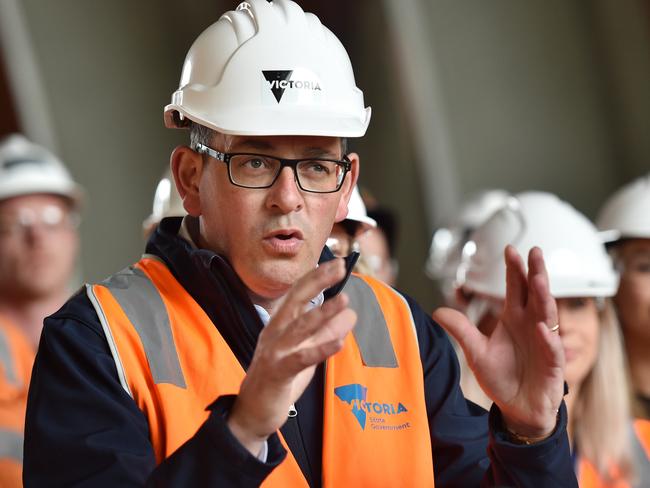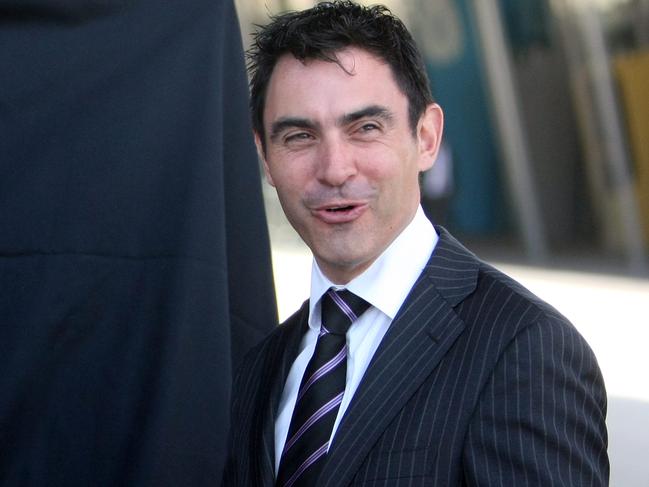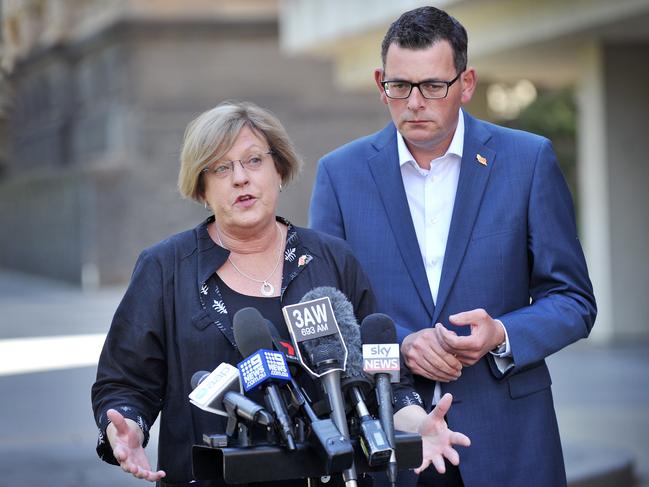James Campbell: Andrews was a politician who would do whatever it takes to win
After one miscalculation, Daniel Andrews was able to bend the ALP to his will and then the government of Victoria – and the consequences will be felt for decades to come.
Opinion
Don't miss out on the headlines from Opinion. Followed categories will be added to My News.
Amid their shock and grief in the days after John Brumby’s defeat in December 2010, Labor right wingers had to make a decision – either stick together and get behind Tim Holding as ALP leader or split and hand the job to the Socialist Left’s Daniel Andrews.
History will show the right’s bet that Andrews was likely to be an ineffectual leader they could later remove at their leisure was wrong.
It turned out to be a fatal miscalculation of the political abilities of the man who this week will leave Spring St for the last time as Premier.
In the next 13 years, Andrews would first bend the ALP to his will and then the government of Victoria.

In that time not only did he obliterate his internal Labor enemies, he twice smashed the Liberal and National parties at the ballot box.
With hindsight, that Andrews was a politician who would do whatever it takes to win was not something he hid.
On the shelf in his office in 1 Treasury Place he used to keep several volumes of Robert A. Caro’s biography of Lyndon Johnson.
It was a strange and revealing work to be keeping on display within arm’s reach of his desk, as on almost every page its subject lies, schemes and cheats his way from his dirt poor childhood to the White House.

Johnson’s motto “If you do everything, you will win” might well be Andrews.
When in opposition the right faction leader Adem Somyurek questioned Andrews over the legality of the Red Shirts scheme that an Ombudsman’s report would later find had improperly diverted hundreds of thousands of dollars of taxpayer-funded labour into Labor’s winning election 2014 campaign. Andrews is said to answered: “Do you want to win?”
The consequences of Andrews’ winner-take-all approach to politics will be felt by Victorians for decades to come as we digest the billions in unnecessary debt racked up because Andrews ignored warnings the government was trying to do too much too quickly.
That Andrews’ regime would not be one that respected process or where alternative points of view were welcome became clear to both minister and public servants soon after Labor returned to office in 2014.
“It took me a while to realise that suggesting things that were contrary to what he wanted was a route to an exit,” one minister recalled.
“It wasn’t necessarily a quick exit; he was patient and he remembered.”

Within months of taking office Andrews had sacked the chairman and chief executive of WorkSafe, as well as the board of Ambulance Victoria, and every water board in the state.
He also dumped the Coalition government’s attempts to restrict the power of the CFMEU on Victoria’s building sites as well as handing increases to paramedics as a thank you for helping him to get elected.
Andrews’ attempts to effect a similar payback to the United Firefighters Union, whose members had dressed up in fake firefighter uniforms to hand out for Labor in 2014, caused a crisis that dominated much of his first term in office.
The 2016 CFA dispute in which thousands of volunteer firefighters protested for weeks to stop what they saw as the union takeover of the organisation revealed how ruthless he could be.
Andrews’ emergency services minister Jane Garrett was determined the government should resist the UFU’s demands because she thought the price they were demanding was exorbitant and because it would gut the CFA.
She appealed to her colleagues, especially the Treasurer Tim Pallas, with whom she had worked as a staffer in Steve Bracks’s office, that the deal would be a disaster for the state.
Pallas insisted he had to back the Premier.
The only minister to back Garrett was the women’s minister Fiona Richardson. Isolated and in despair, Garrett quit.
Cabinet agreed the EBA without dissent. By then it had been clear to everyone that no dissent would tolerated.

Cabinet meetings under Andrews were not occasions for discussion, they were held to rubberstamp decisions that already been taken.
On one occasion in their first year in government the Premier had stunned his colleagues by warning they might be asked to hand over their mobile phones so they could be checked to see if they had been talking to journalists.
The change from the way Bracks and Brumby had run their governments was a shock to the veterans of the previous Labor government.
The centralisation of power in the hands of the Premier was something no one had been prepared for.
Over the course of his time in office Andrews’ private office – the PPO as it is known – became a government within a government, with staff, many of them junior, shadowing the public service.
The joke among journalists in Spring St became that it was a waste of time cultivating ministers for information because in many cases they were ignorant of the measures being announced in their names.
And then the pandemic struck in 2020, the last semblance of normal cabinet government was suspended and the state was effectively ruled by a committee of public safety headed by the Premier.

The CCC or crisis committee of cabinet was to preside over the disaster of the hotel quarantine leak, which was to lead to the world’s longest series of lockdowns. It scarcely bears thinking about but in June 2020 Andrews managed to grab even more power when Somyurek’s branch stacking activities led to federal intervention in the Victorian ALP.
For much of 2020 and 2021 Daniel Andrews ruled Victoria without any cabinet or party check on his power and with minimal scrutiny of parliament.
And what did the public think of this?
The verdict of the 2022 election is they liked it.
The Liberals were not merely obliterated, Andrews managed to increase his majority.
And now he is gone.
We will not see his like again. Thank goodness.





